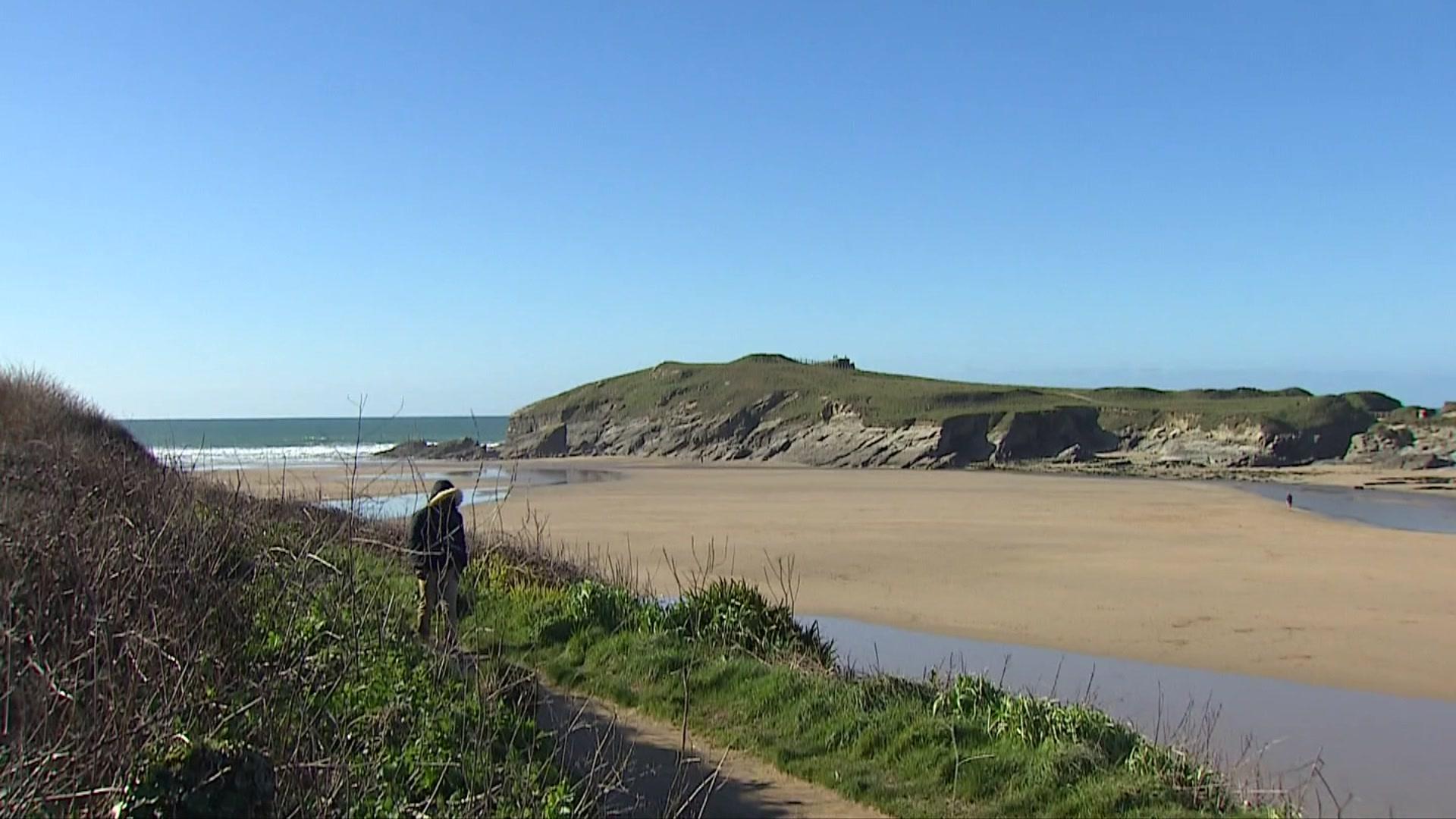All migrants moved out of Newquay hotel
- Published
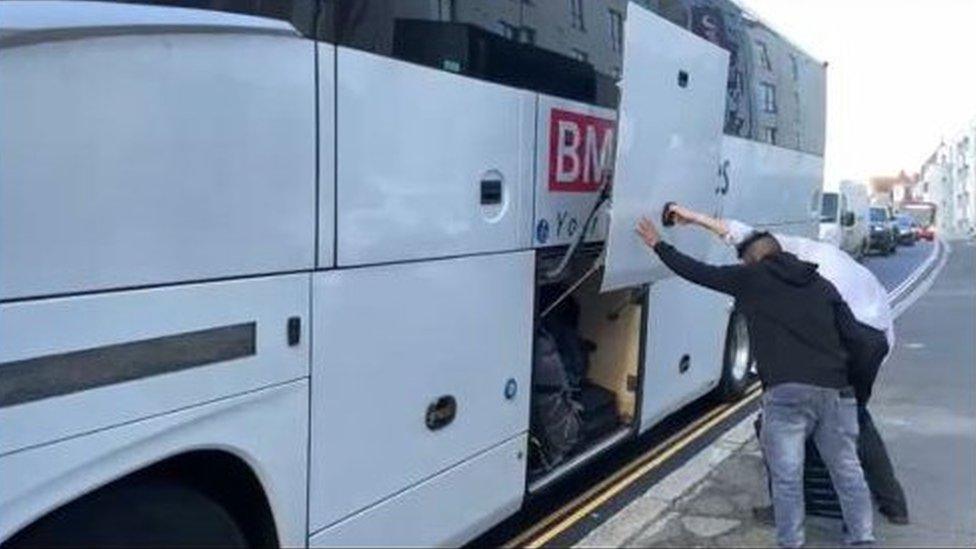
There were thought to be more than 100 migrants at the seafront hotel in the Cornish resort.
All of the migrants who were staying at a hotel in Newquay are being moved out, Cornwall Council has said.
Residents will be moved to alternative accommodation in the South East of England "over the next 24 hours".
There were thought to be more than 100 migrants at the seafront hotel. One told the BBC they were given 24 hours notice of the move.
In a statement, the Home Office said the use of hotels to house asylum seekers was "unacceptable".
The BBC spoke to a man from Syria seeking asylum, who was about to leave the hotel on a coach.
He said he had met people in Newquay who treated him "as part of the family".
He added: "I feel upset now, I'm depressed because I'm leaving them.
"They say to us they will send us to London, where exactly we don't know but I hope to find a good friend again.
"Don't judge a book by its cover. We escaped from war countries to safe countries to share with you the feeling of love."
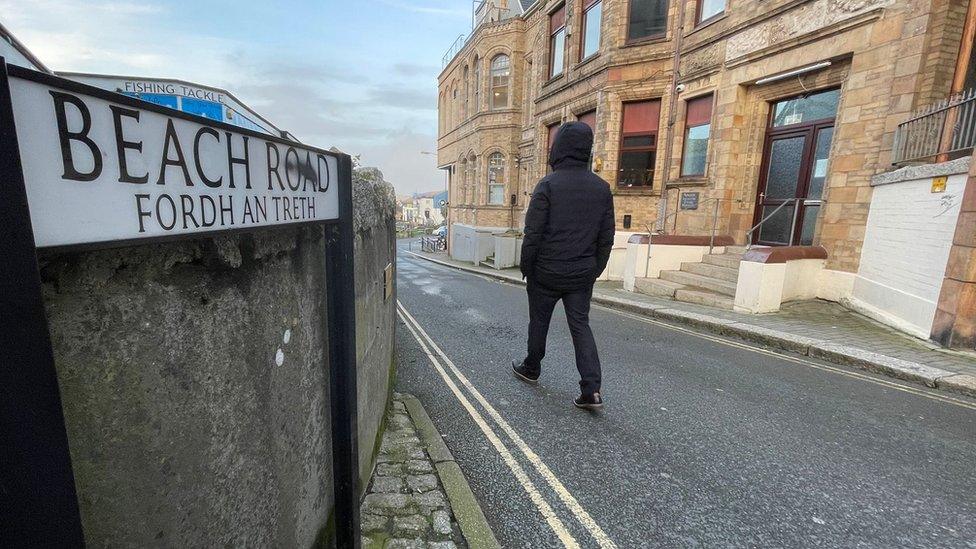
An asylum seeker in Newquay told the BBC he had experienced hostility from some people
An asylum seeker staying in Newquay previously told the BBC he regretted the decision to come to the UK after experiencing hostility.
Speaking again on Thursday as he was being driven from the hotel, Chris, not his real name to protect his identity, said they had not been told where they were going.
He said they had been given a letter on Wednesday telling them they would be moved out on Thursday.
He added: "Where the Home Office is concerned, they need to have a little more...information when it comes to migrants and letting them know where they are going so they can be a little more eased and a little more relaxed of the situation."
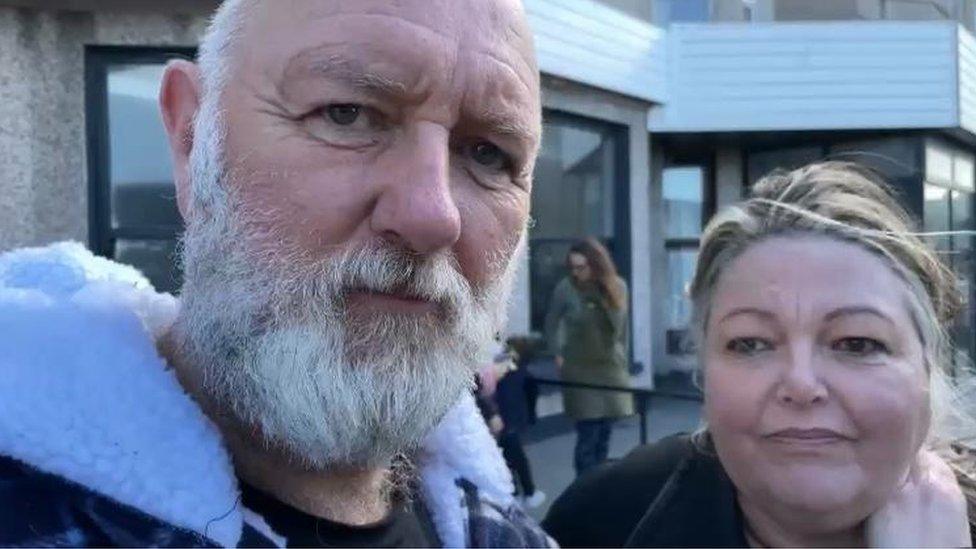
Kevin and Diane Scholes worked with some of the asylum seekers at a community garden
Diane and Kevin Scholes met some of the asylum seekers through the Community Orchard Project, a community garden in Newquay.
Mrs Scholes said: "A lot of these lads didn't even have bags to pack their stuff in, they have had no warning and when it comes down to it they are just lads, they are just like our kids.
"I think we should give them a chance."
Cornwall Council said the decision to move the migrants had been made "without reference to the council".
A specific location for where the migrants have been taken is not known.
On 29 March Immigration Minister Robert Jenrick told parliament three sites in Lincolnshire and Essex, plus another in East Sussex, would be used as migrant housing in a bid to cut down on hotel use.
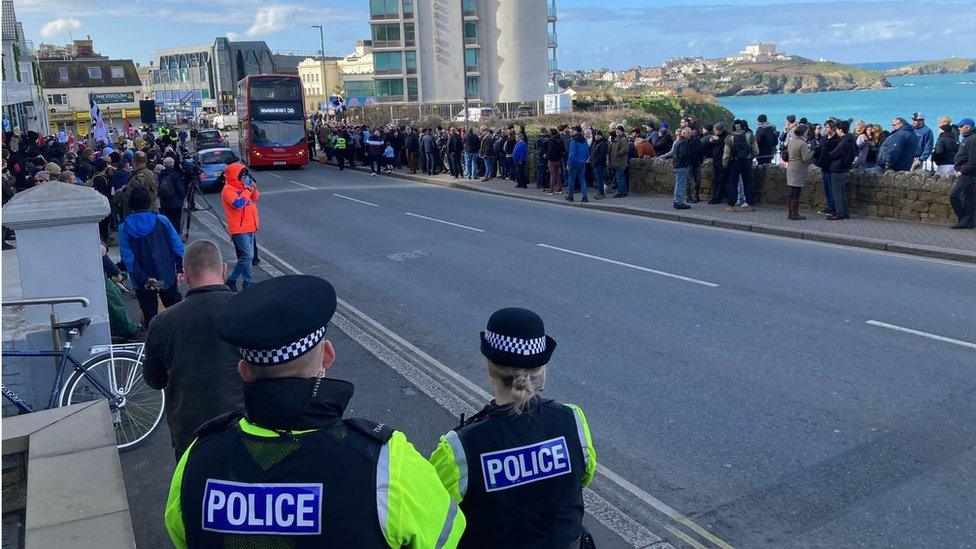
In February, people attended on either side of the road for and against asylum seekers being housed in a hotel in Newquay
The presence of the migrants at the Newquay hotel prompted protests in February with campaigners both for and against turning out on the town's streets.
In March, two people were arrested on suspicion of assault and two were issued with Section 35 dispersal antisocial behaviour notices following more protesting on both sides.
Similar protests took place across the country, including in Skegness and Lincolnshire, which passed off peacefully.
Hotels have also been used to house asylum seekers in Torbay, Ilfracombe, and Exeter.
Cornwall Council said: "We would like to thank residents in Newquay and across Cornwall for the ongoing support and welcome shown to residents who were temporarily in Newquay awaiting their asylum claims being determined."
The Home Office said it would not not comment on operational arrangements for individual sites.
A Home Office spokesman said the use of hotels to house asylum seekers was "unacceptable" with "more than 51,000 asylum seekers in hotels costing the UK taxpayer £6 million a day".
The spokesman said the Home Office was "committed to making every effort to reduce hotel use and limit the burden on the taxpayer".

Follow BBC News South West on Twitter, external, Facebook, external and Instagram, external. Send your story ideas to spotlight@bbc.co.uk.
Related topics
- Published26 March 2023
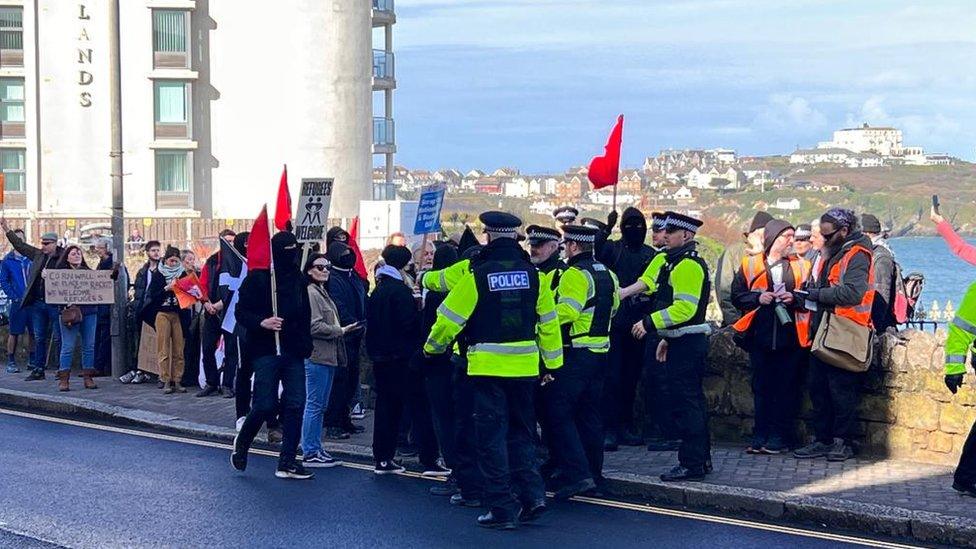
- Published27 February 2023
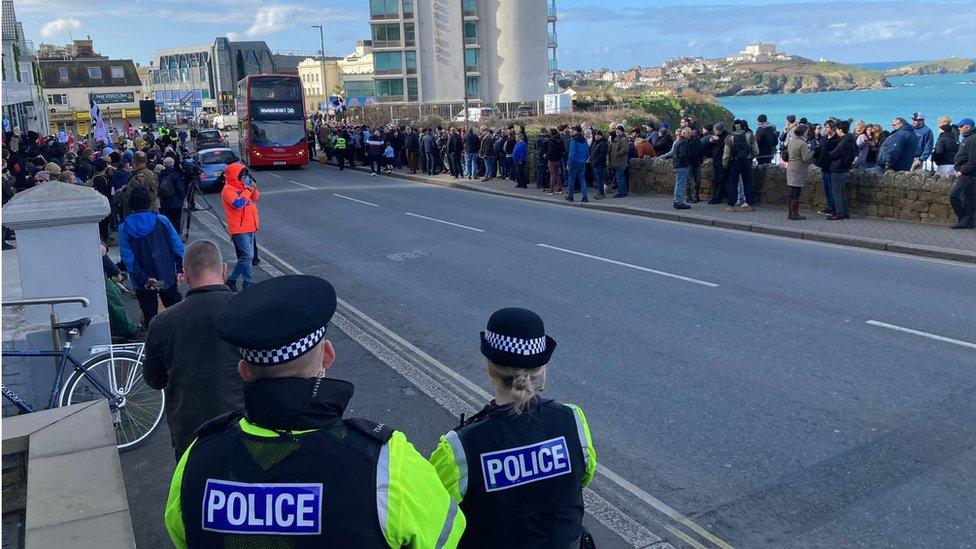
- Published27 March 2023
